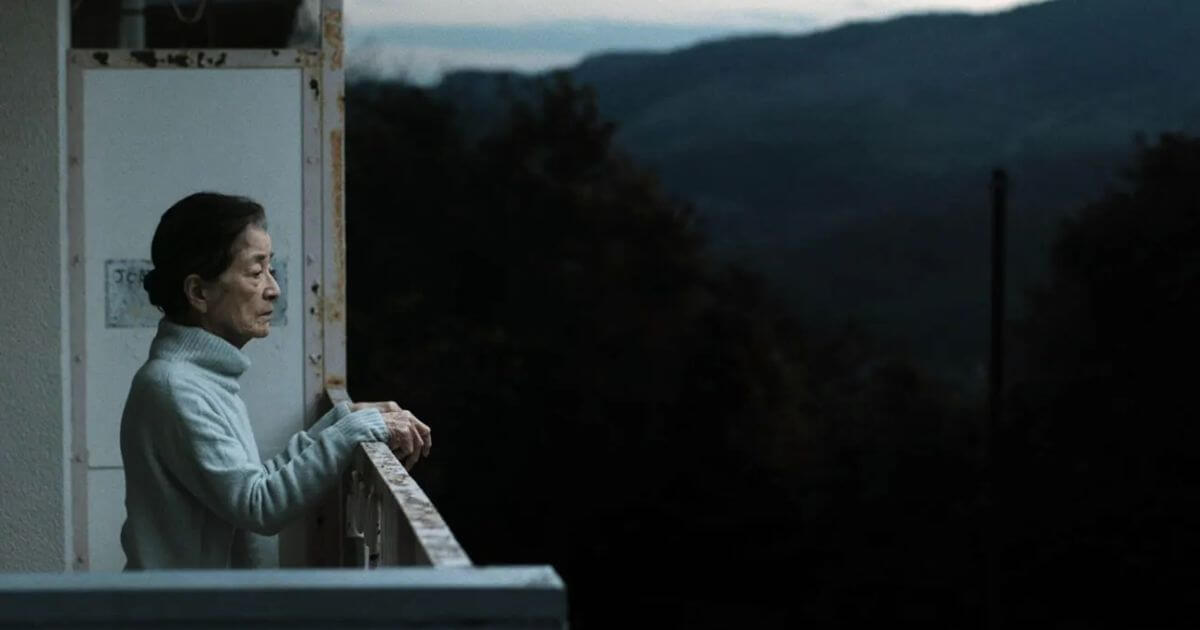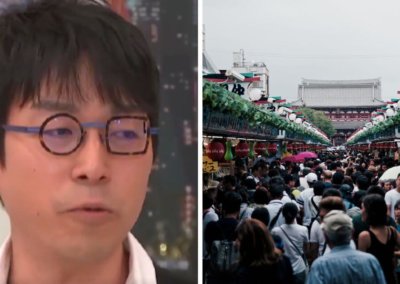A new film imagines the possibility of a voluntary euthanasia scheme being introduced in Japan for all over 75s as a “solution” to Japan’s ageing population.
The film, Plan 75, imagines a Japan in which state-sponsored euthanasia is encouraged for all Japanese citizens over the age of 75 so that they might avoid ‘being a burden’ on the rest of the society. The director, Chie Hayakawa, describes the film as “too real to be sci-fi”.
The film is yet to be released in the UK but a short trailer is available and the Guardian describes the premise of the film as follows:
“Instead of being a burden, a bother, a resource-draining nuisance, anyone aged 75 can simply place themselves in the calm, efficient hands of the state and painlessly slip away. Those with money and family can do so at the end of a two-day premium package, after spa treatments and special meals. Those without are given enough cash to pay for basic funeral costs before lying down on a campbed in a dark, silent room divided by curtains where they quietly acquiesce to being gassed to death”.
Concern about being a burden is a motivation for euthanasia
Having observed Japanese society for the best part of a decade and becoming increasingly alarmed about its direction, Hayakawa said “A state-sanctioned solution like Plan 75 is far from impossible in a country that is growing ever more intolerant to socially weak people: the elderly, the disabled and the people who have no money”.
The director went on to say that the Japanese concept of self-responsibility has become an obsession in Japan. “It means that we have to take care of ourselves instead of relying on the government or being a burden to society – and it has created a kind of hatred towards the elderly and the weak” she said.
This idea is one of the themes of the film and is seen through the main character, Mishi Kakutani, played by actress, Chieko Baisho. Kakutani is so concerned about avoiding claiming welfare and being a burden on anyone that she takes a dangerous job directing traffic in the middle of the night around roadworks on a motorway.
Hayakawa said the film raises questions about a society “that can be so inhuman to offer death instead of a way to help vulnerable people feel less isolated or afraid. To give them a reason to live instead of a way to die”.
Fear of a lonely death
Shockingly, when the film came out in Japan, many commentators online expressed their support for the idea and suggested that this sort of scheme was precisely what Japan needed. While researching the character of Kakutani, as director, Hayakawa found that the majority of the elderly women she interviewed would welcome Plan 75.
“[T]hey feel a lot of concern about being old and don’t want to be a bother to anybody, including their kids or family. They said that when they got dementia or they felt very sick, they wanted this option.”
In addition to being a burden, Hayakawa said many of the women feared ‘kodokushi’, or lonely death: an increasingly common scenario where people die alone and are not discovered for a long time.
Hayakawa also said that she wanted people to think about this issue more because “once we have this kind of system, there’s a certain group of people who feel they have no option but to take it.” Added to this, in the film, Plan 75 makes so much money for those involved, that it is quietly expanded.
The expansion of those eligible for euthanasia is exactly what has happened in Canada and the Netherlands, where euthanasia was initially introduced under fairly restricted circumstances. However, the Netherlands is now in the process of making euthanasia available for children who are thought to be terminally ill.
Canada also removed the requirement that an adult be terminally ill before being able to access euthanasia less than five years after the practice was made legal in 2016.
Scenarios in film already playing out in countries where legal
The reasons for seeking euthanasia dramatised in this film, such as a fear of being a burden or loneliness, are frequently cited as reasons to seek assisted suicide or euthanasia in countries where it has been legalised.
10,064 Canadians ended their lives by assisted suicide or euthanasia in 2021 accounting for 3.3% of all deaths in the country and an increase of 32.4% from the previous year.
17.3% of people in Canada who ended their lives this way cited “isolation or loneliness” as a reason for wanting to die. In 35.7% of cases, patients believed that they were a “burden on family, friends or caregivers”.
Similarly, in Oregon, which UK assisted suicide campaigners, Dignity in Dying, reqularly cite as a model for rolling out legislation to the UK, among the end-of-life concerns listed by those who ended their lives, almost half (46.4%) of those who ended their lives reported being concerned about being a “[b]urden on family, friends/caregivers”, and 6.1% said they were concerned about the “[f]inancial implications of treatment”.
A study in Ireland found that almost three-quarters of people over 50 who had previously expressed a wish to die no longer had that desire two years later.
Right To Life UK spokesperson Catherine Robinson said “The film is yet to be released in the UK, but judging from the comments from the director and the short trailer, this film posits an eerily realistic future. Sadly, we don’t have to imagine many of the concerns the film raises about ‘being a burden’ and loneliness – these are already the lived reality of many of those who end their lives in this way. Both the data from Canada and Oregon prove this.”
“Hopefully this film will encourage viewers to think seriously about the societal implications of making euthanasia available and encouraging people who are sick and/or elderly to take it. The UK hasn’t gone down this path yet. We should be assisting people to live, not to die.”











